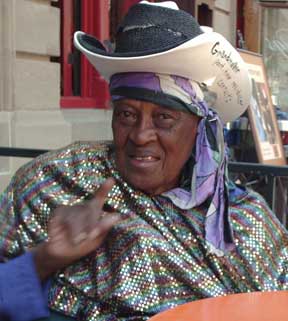Learn to tell short stories
Don’t look now but we’re surrounded…by stories. Everywhere we look and listen, stories are being told, retold and even created.
Our Storied Past
Growing up, we were told stories, by our parents, grandparents, favorite Uncle or Aunt. That’s how we learned about our rich family history and ethnic heritage. Whether around the dinner table or the kitchen table, the fireplace, front stoop or back porch.
Our parents and babysitters used stories to put us to sleep at night. Whether they read tales from books, told family stories passed down through generations, or made up stories to suit our fancy, stories instilled values, pride and an understanding of how the world worked. Stories helped us envision what was possible, and cautionary tales told us what not to do!
In school we were told stories to teach us about our nation. We studied stories: whether about the building of our nation, Greek mythology or Shakespeare’s classics. After school and on weekends we learned stories of our religious heritage. Summer camps were full of stories. As were fishing and camping trips. And of course, we as kids told tales out of school! We were natural storytellers.
Our novels, radio and TV shows, movies and newspapers are also full of stories, with exotic settings, fascinating characters, incredible journeys, seemingly unconquerable obstacles and fantastic triumphs of epic proportions. Even the Opera, rap and commercials are further examples of stories, expertly told, that connect with others.
Relocating The Storyteller in You
As we get older we learn new ways of imparting information: the essay, the résumé, the elevator speech, job interview, the meeting report. Meanwhile our storytelling skills atrophy. The good news: relief is just a Toastmasters meeting away. I recommend you start by telling two-minute stories in the form of responses to weekly Table Topics.
Two Minute Tales
As we get older we learn new ways of imparting information: the essay, the résumé, the elevator speech, job interview, the meeting report. Meanwhile our storytelling skills atrophy. The good news: relief is just a story away. I recommend you start by telling two-minute stories in the form of responses to questions and topics such as the ones below.
What are the elements of a story? Setting, characters, action, and reaction, leading to a resolution. You can do all that, in style, in two minutes, and even receive applause for your effort. And don’t underestimate the power of an archetypal story, one whose theme, structure or feel we know almost inherently. Those connect the best.
And The Topic Is…
Here are some examples of topics you can respond to with a 2-minute tale.
Why is Bike Safety Important?
Answer this topic with a story of you as a biker (or driver). Cycle through the scenario, action and outcome. Color the topic with descriptive language. The whoosh of the car, jarring of the pothole, the smell of car exhausts in the bike lane, etc.
The Vacation from Hell…
Take us on vacation with you as you revisit the vacation from hell. The misery, monotony or malady that overwhelmed your best-laid plans. Give us a travelogue with sounds, smells, moods and local color.
The First Kiss
We want to hear the love story that blossomed…in school, after school or at summer camp. The tension, anticipation and ecstasy involved with the buss. Let us hear your heart beating, smell the sweat and hear the music as you kiss for the first time.
The Ghost Story
Weave a yarn about a haunted house or other location where spirits dwell. Give us suspense, fear and trepidation. Let us hear the voices, see the apparitions and suspend reality as you conjure up scary monsters.
My favorite Pet
A love story if ever there was one. Anthropomorphize. Tell us about your relationship with Fifi, Fido or Fredo.
Your Favorite Meal or Food
Take us dining with you. Your story lets us relive the meal or special occasion. Help us breathe in the savory smells, taste the succulent dishes and sate all our senses with your story. Give us the anticipation beforehand and the satisfaction that follows. We’ll digest it all as you tell it.
Stories Speak
According to storyteller Jean Ellisen, a former co-director of the Bay Area Storytelling Festival: “Stories speak! Among of the benefits of story and storytelling: to remind us how to listen. If we could just be better listeners, we’d reduce our workplace quarrels, interpersonal strife, and globally the world would be a more peaceful place.” Knowing this, we can story on.
Two-Minute Warning!
Scour your kitchen for an egg timer and use it to practice your two-minutes stories. (Remember, in Table Topics you have up to 2 ½ minutes! Leave a little sand in the glass.) When you’re next called for Table Topics, think story instead of speech or stream of consciousness. Whatever the topic you can likely tell a two-minute story, replete with a locale, characters, a challenge and a triumph.
As one of my favorite storytellers, the late Orunamamu, used to say:
“I stepped on a pin, the pin bent,
“And that’s the way the story went.”

Well, what are you waiting for? It’s story time!


Leave A Comment